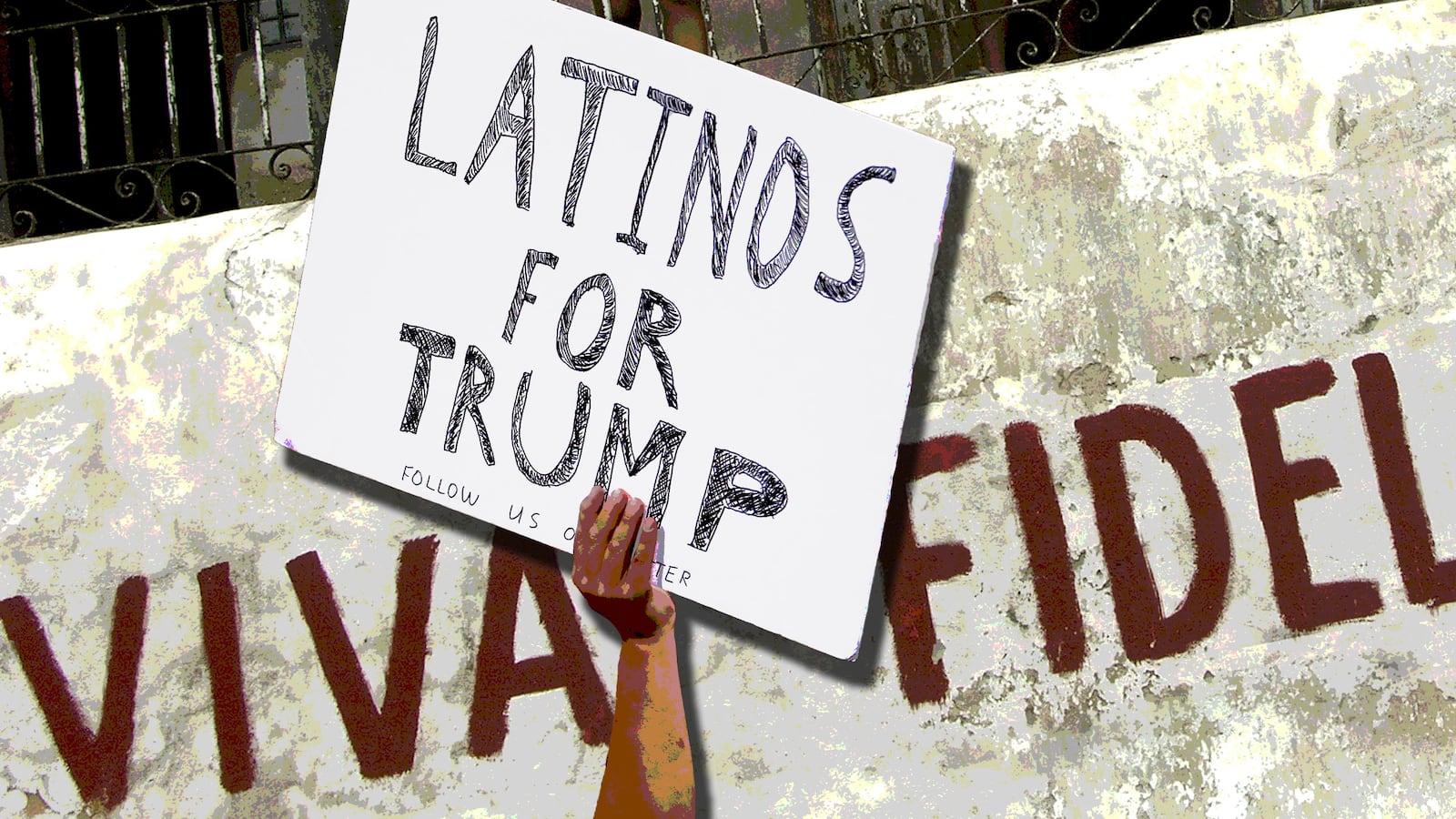When he was alive, Fidel Castro divided Latinos. The Castro-led revolution in 1959 that sent Fulgencio Batista to exile in Portugal divided those folks who were “haves” under Batista from the “have nots.” And then, as refugees fled Cuba and settled in South Florida, he divided the Cubans who stayed on the island from those who left it.
But Castro was just getting warmed up. He also reached across the ocean and into the Latino community in the United States. And then he proceeded to divide one Latino from another in this country.
As you may have figured out long ago, umbrella terms like “Latino” or “Hispanic” are a tad too broad to be of much use. In reality, the 54 million people in the United States whose ancestral roots are in Latin America have little in common besides Catholicism, immigrant roots, and the fact that some of them speak Spanish—or at least did once upon a time.
Castro worsened the division. Cuban-Americans who curse his name for oppressing his own people squabble with Mexican-Americans who marvel at how he stood up to the United States.
Even as a Mexican-American, when it comes to Castro, I side with my Cuban-American friends.
At the moment, I share their disdain for left-leaning baby boomers in the media who continue to romanticize a brutal dictator who killed, starved, and oppressed his own people. Let’s not forget that Castro—during the Cuban Missile Crisis in October 1962—demanded that the Russians launch a nuclear strike against the United States if Cuba was invaded to rid the island of Russian missiles. This man was no saint.
And so I’m happy for my Cuban-American friends. They and their families have suffered so much for so long. Imagine not being able to go home for your mother’s funeral, or never seeing your brother or sister again for the rest of your life.
But having said that, I also understand why—not just in Mexico or within elements of the Mexican-American population in the United States but also throughout Latin America, a region of the world that has long had to deal with meddling and even violent coups due to Yankee imperialism by the United States—so many folks south of the border are celebrating the life of the one guy who stood up to the United States time and again, and who ultimately died—as CBS News put it—not as a result of a CIA assassination attempt but “on his own terms.”
It’s no wonder that Castro has caused so much tension between Latinos for more than 50 years. One reason it didn’t surface more often is geography. Cuban-Americans are concentrated in Miami, and Mexican-Americans in the Southwest.
Still, when these folks find themselves in the same room, or on the same panel, or on the same television live feed and the subject of Castro comes up, there are often fireworks.
It happened, most famously, in 2000, when an international custody battle over a 6-year-old Cuban boy who was headed to Florida on a raft captivated the nation’s attention.
I’ve always argued that we should never have sent Elian Gonzalez back to Cuba, where Castro turned the boy’s life into a massive anti-U.S. propaganda machine. Any more than we would have entertained the idea, during the Cold War, of taking those children who were lucky enough to escape East Germany and tossing them back over the Berlin Wall.
The Elian Gonzalez drama—and how differently some people reacted to it—put the spotlight on this division between Mexicans and Cubans in the United States. Mexican-Americans value family, Cuban-Americans value freedom. The former wanted to send Elian back to his father in Cuba, the latter wanted to keep him in the Land of The Free—the place his mother, who died at sea, gave her life to try to reach.
Often lumped together under an umbrella term like “Latino” or “Hispanic,” these are really two totally different groups of people. They’re the Mars and Venus of the Latino community.
And so, given all the division that Castro has wrought over the last half century, it would be awfully poetic if, in death, the ruthless Cuban tyrant actually brought Latinos together.
That would end the politics of divide and conquer. Imagine if Latinos could combine the wealth of Cuban-Americans who have influence in the Republican Party with the numbers represented by Mexican-Americans—who make up about two thirds of the total U.S. Latino population, or 36 million people, and who have become an important part of the Democratic Party coalition.
How do we get there? We need three things: respect, humility, and empathy. We need to respect where each other is coming from. We need to be humble enough to admit that we don’t know everything, and haven’t had every experience. And we need to be empathetic enough to accept that, even if we don’t feel each other’s pain and suffering, we can at least defer to it.
But alas, these qualities are in short supply in America these days. And not just when it comes to Castro.
Pivoting from one divisive demagogue to another, it’s been nearly a month since Donald Trump was elected president, and many Latinos are still in shock. They’re angry, scared, and frustrated. And, to tell you the truth, they’re also feeling stabbed in the back by the folks in their circle of acquaintances who voted for Trump—friends, neighbors, in-laws, and even, in some cases, relatives.
Those who are close to us—knowing how Trump had gone out of his way during the last 18 months to demonize, torment, marginalize, and bully Mexicans and Mexican-Americans—should be more sensitive to our fears and concerns.
This includes Cuban-Americans, who figured prominently into the surprisingly strong showing that Trump had with Latino voters. In Florida, as much as 50 percent of Latinos voted for the Republican nominee, according to some polls. Despite the fact that there is a large presence of Colombian-Americans and Puerto Ricans now living in the Sunshine State, Cuban-Americans still constitute the largest single Latino group in the state. So we can assume that this is where Trump drew much of his support.
Now many Mexican-Americans would like to ask their Cuban-American cousins: “How could you support someone like that and still look us in the face?” Ironically, it’s the same question that Cuban-Americans have asked their Mexican-American cousins about Castro for nearly six decades: “How could you support someone like that and still look us in the face?”
When it comes to rallying around Trump, Cuban-Americans need to be more respectful, humble and empathetic. The same goes for Mexican-Americans when it comes to eulogizing Castro.
We Latinos can unify ourselves. But first, everyone just needs to get over themselves.






